Critical Thinking Can Lead to Positive Appraisal of Ideas
Update: March 10, 2022This E-Newsletter is mainly for teachers and counselors involved in secondary education, but is open to individuals who wish to subscribe to it. Please fill in the form below and click on the "Subscribe to this E-Newsletter" button.
Subscribe to this E-Newsletter
Message from ICU , No.9 (March 10, 2022 )
Critical Thinking Can Lead to Positive Appraisal of Ideas
Natsumi Ikoma, Associate Dean of the CLA in charge of the curriculum
Critical thinking, a key part of liberal arts education
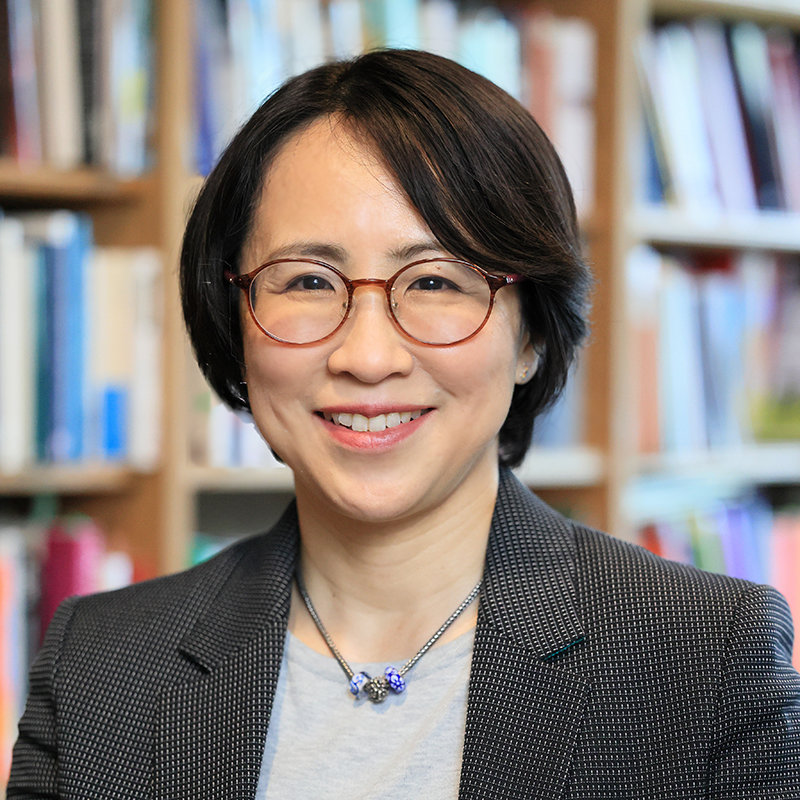 Recent interest in liberal arts in Japan has led to its introduction in the initial years of the undergraduate curriculum, or in the establishment of departments devoted to this approach in learning. The educational tradition cultivates an interdisciplinary intellectual foundation, a broad range of knowledge, creative thinking, human development and maturity of personality. Since its establishment in 1953, ICU has devoted itself to liberal arts education. Our program differs from that which educates students with the goal of training them with practical skills and acquiring qualifications. Its mission is to cultivate the adaptability to live their lives to the fullest as responsible global citizens.
Recent interest in liberal arts in Japan has led to its introduction in the initial years of the undergraduate curriculum, or in the establishment of departments devoted to this approach in learning. The educational tradition cultivates an interdisciplinary intellectual foundation, a broad range of knowledge, creative thinking, human development and maturity of personality. Since its establishment in 1953, ICU has devoted itself to liberal arts education. Our program differs from that which educates students with the goal of training them with practical skills and acquiring qualifications. Its mission is to cultivate the adaptability to live their lives to the fullest as responsible global citizens.
The foundation of liberal arts education is critical thinking. The skill is often confused with negative thinking, perhaps more so in Japanese, as the common translation for the concept is hihanteki shiko, literally a negative examination of ideas. This is a misunderstanding, as the etymology of the word can be traced to the ancient Greek word kritikos, meaning to discern, analyze and understand. Originally, it referred to humans mobilizing reasoning to make up for our limitations as we lack the omniscience of the Gods. For example, in the Letter to the Hebrews in the New Testament, the word "discerner" is used for kritikos.
For the word of God is quick, and powerful, and sharper than any two-edged sword, piercing even to the dividing asunder of soul and spirit, and of the joints and marrow, and is a discerner of the thoughts and intents of the heart. (King James version, Hebrews 4:12)
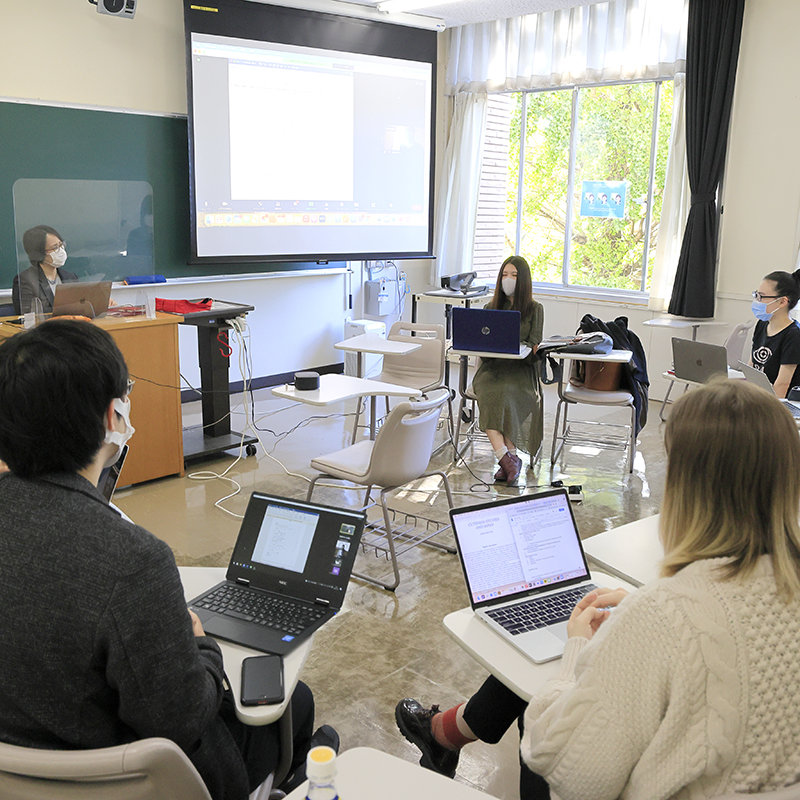 The premise here is that unlike God, we humans have our share of shortcomings in our thinking and judgement. This is why we need to activate all our knowledge to maximize the ability to make reasonable decisions.
The premise here is that unlike God, we humans have our share of shortcomings in our thinking and judgement. This is why we need to activate all our knowledge to maximize the ability to make reasonable decisions.
Thus, critical thinking does not imply rejecting others' ideas, but provides a well-organized manner of thought that identifies half-baked ideas and improves the thinking process. This mindset does not take things for granted whether they are common sense or beliefs, including the assumptions of an argument. After comprehensive deliberation, critical thinkers can affirm or negate an idea.
Training is necessary to think critically
In reality, critical thinking requires great effort. When we hear something that deviates from our fundamental beliefs and common sense, we often become defensive. It is not easy to admit that your idea may be uncorroborated or simply incorrect. You need to allow this initial reaction to pass for intellectual growth. The important thing is to ask yourself why you want to reject something. This is the first step in critical thinking.
The opposite is also true. Misleading claims that seemingly align with your anxiety or doubts, may well lead to belief in demagoguery. An example of this type of misinformation was a rumor that foreigners had poisoned wells in the wake of the Great Kanto Earthquake, resulting in the tragic murder of many Koreans and Chinese. The discriminatory sentiment towards non-Japanese existing prior to the earthquake had fueled the racist violence and the incendiary dialogue among people who could not make rational judgements.
During this pandemic, we confronted misinformation and conspiracy theories about the vaccine. Scientifically false narratives spread via the Internet, claiming that the vaccine alters people's DNA or stunts fertility. Fear of contagion and vague anxiety over the side effects of the vaccine fortified belief in these falsehoods, which circulated like wildfire on social media. SNS played a pivotal role in facilitating the spread of these unreasonable claims, some of us inadvertently playing a part in disseminating misinformation. Amidst this deluge of information in modern society, we need to discern what is right and wrong by ourselves. This means we need to delve into a subject deeply; be trained to understand medical and scientific information and make rational judgements. Media literacy is indispensable to navigate this complex world.
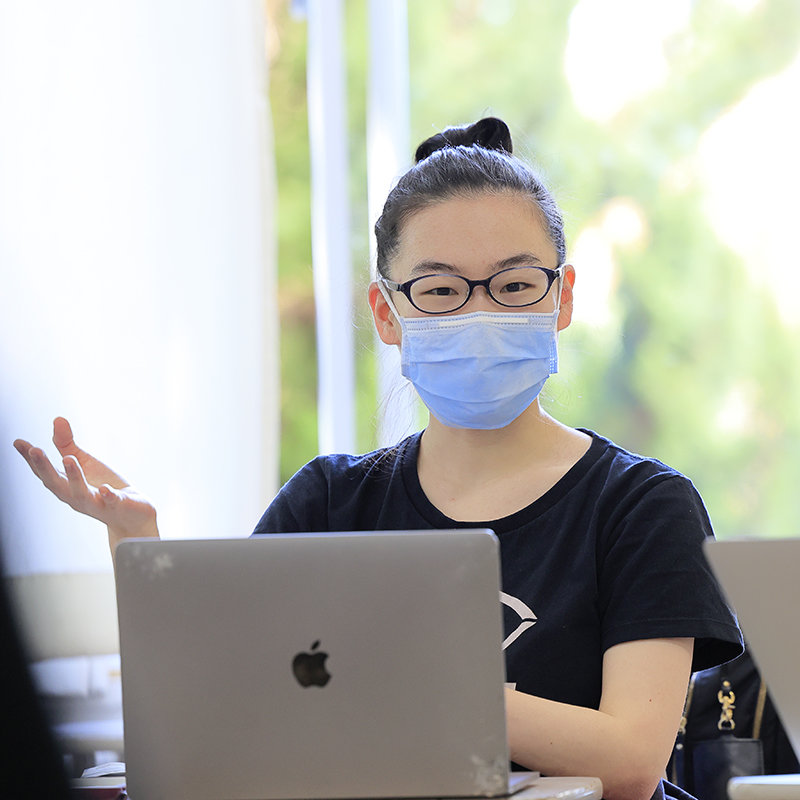
That said, how do we identify the reasonable from the unreasonable in an age of information overload? Decisions you make will have consequences (kritikos), so you may have the urge to have others make them for you. Even though we know that many posts on the Web prey on public anxieties with smooth rhetoric to lead followers to a certain business or ideology, many are reeled in. We need to question if the notion is really true, and why we are being swayed into believing specious information. It is much more difficult and important to reflect on your own thinking and reconsider what you thought as common sense, than to reject others' ideas.
Critical thinking skills cannot be acquired overnight. Training is necessary. We have to admit to the strong urge to reject unfamiliar ideas intuitively. To think critically, we need a wide range of information and a multiangled perspective to make comprehensive judgements.
Critical thinking in action at ICU
At ICU, critical thinking training starts with the English program for first year students. The program aims not only to enhance English ability, but also nurtures the ability to contribute to the world using English as a tool. Students read various academic materials in English, delve into the subject, make presentations and discuss the topic with their classmates to consider an issue deeply from many angles. After they complete this program, all other courses are also designed to enhance their critical thinking ability. The meticulous instruction at ICU that cultivates this skill is founded on bilingual education, active interaction in the classroom and education in small classes. We were among the first Japanese universities to introduce gender & sexuality studies in the undergraduate curriculum, which reflects the concern for diversity in our educational environment in languages, culture and sexuality. Faculty hail from a wide range of countries and backgrounds, and we have a small student-faculty ratio at 18 to 1. Students are at liberty to question and discuss ideas very thoroughly. What stands out in our curriculum in comparison with other universities in Japan is that they can take interdisciplinary general education courses throughout their years at ICU, which are differentiated from specialized courses and allow them to explore subjects from multiple academic perspectives. This educational environment differs from passive one-way instruction, as students engage in active learning that gradually enhances their critical thinking abilities.
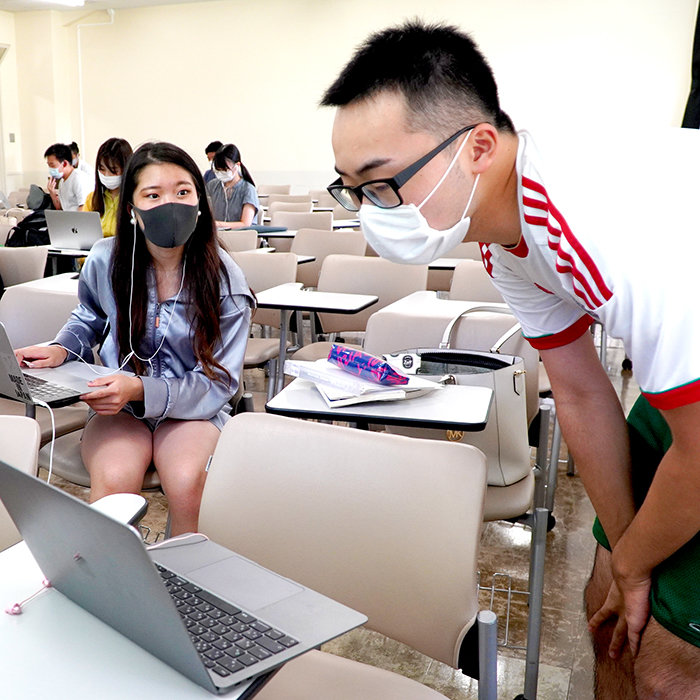 Critical thinking is especially important in gender & sexuality studies. In terms of gender identity, the male-female binary is so firmly entrenched in society that students say they had never given thought to the fact that something in-between may exist. Many encounter issues featured in this field for the first time in college. Therefore, it is perhaps most appropriate as subject matter in exercising doubt on what they regard as common sense. Quite often, students (using a Japanese expression) say scales fell from their eyes by taking courses in this area, a sign they have become aware of the cognitive bias that had limited their thinking or vision.
Critical thinking is especially important in gender & sexuality studies. In terms of gender identity, the male-female binary is so firmly entrenched in society that students say they had never given thought to the fact that something in-between may exist. Many encounter issues featured in this field for the first time in college. Therefore, it is perhaps most appropriate as subject matter in exercising doubt on what they regard as common sense. Quite often, students (using a Japanese expression) say scales fell from their eyes by taking courses in this area, a sign they have become aware of the cognitive bias that had limited their thinking or vision.
In the initial years at ICU when students are first introduced to the concept of critical thinking, they lean towards faultfinding. But as they grow more accustomed to the skills involved, they learn to reflect on their thoughts and acquire the ability to think systematically. Many alumni mention critical thinking as an advantage of studying at ICU. The time-consuming development of this indispensable skill enables students to experience the joys of thinking, understanding the unfamiliar, and discerning the truth. It empowers them for life, cultivating the ability to own their lives as active global citizens.
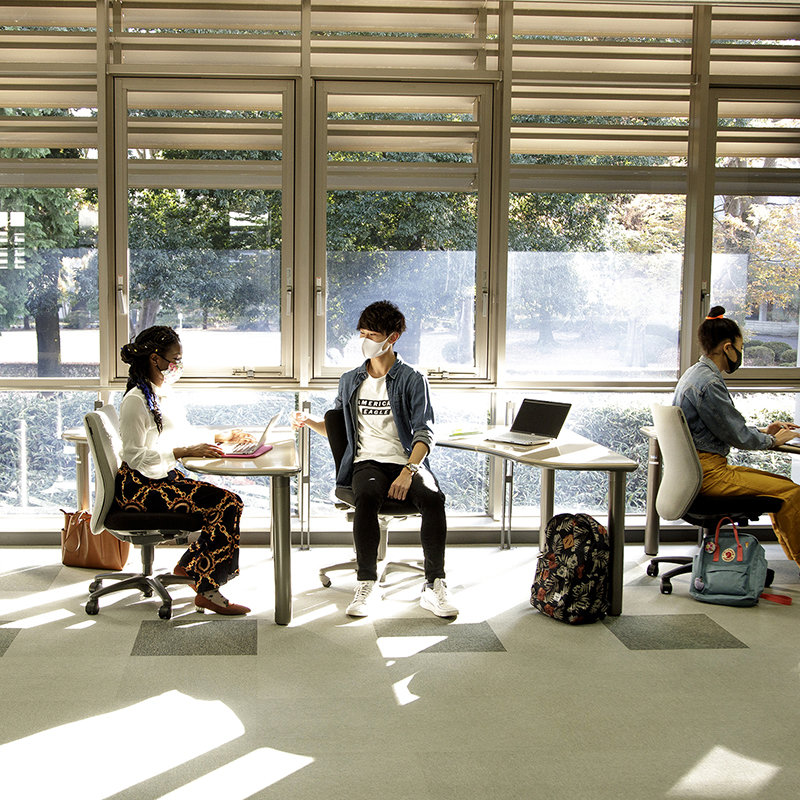 In global society, critical thinking has never been more important. The younger generation will no longer spend a lifetime with people who live by a similar set of values. Regardless of their profession and geographical location, they will be affected by the goings on in the world. No one is immune to the effects of the pandemic and the social problems it brought to light such as racial discrimination, economic disparity, gender inequality, digital divide, and concentration of resources and capital. Environmental problems, poverty and conflict cannot be resolved by a single nation or individual. Intertwined causes will require creative thinking for solutions. Specialists across different professions need to gather for a liberal arts approach to solve problems.
In global society, critical thinking has never been more important. The younger generation will no longer spend a lifetime with people who live by a similar set of values. Regardless of their profession and geographical location, they will be affected by the goings on in the world. No one is immune to the effects of the pandemic and the social problems it brought to light such as racial discrimination, economic disparity, gender inequality, digital divide, and concentration of resources and capital. Environmental problems, poverty and conflict cannot be resolved by a single nation or individual. Intertwined causes will require creative thinking for solutions. Specialists across different professions need to gather for a liberal arts approach to solve problems.
The younger generation must engage in dialogue with those from different religions, languages and varying economic situations in a concerted effort to resolve global problems. To create a peaceful society of symbiosis founded on mutual respect, we would like our students to activate their critical thinking skills to reconsider their beliefs and remain open to others' thinking.
*This article was initially contributed to the Smartnews Media Research Institute for publication on December 24, 2021, and reedited for this post.
Natsumi Ikoma, Associate Dean of the CLA in charge of the curriculum
Professor Ikoma received her Ph.D. in English Studies from the University of Durham, U.K. Prior to her present position at ICU, she served as Chair of the Literature Department and Director of the Center for Gender Studies. She specializes in literature and gender & sexuality studies. Books she authored include Yokubo-suru Bungaku (Desiring Stories) published from Eihosha. She co-authored Gendai Igirisu Bungaku No Ima: Kioku to Rekishi (Contemporary British English Literature Today: Memories and History) from Sairyusha.
